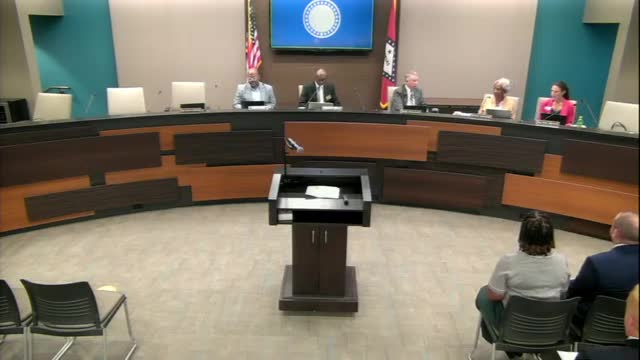Memphis educators launch innovative programs to boost college access and community health
This article was created by AI summarizing key points discussed. AI makes mistakes, so for full details and context, please refer to the video of the full meeting. Please report any errors so we can fix them. Report an error »

On October 16, 2024, the Arkansas Department of Education Charter Authorizing Panel convened to discuss the impact of charter schools on local communities, particularly focusing on educational outcomes and community engagement. The meeting highlighted the importance of understanding how educational initiatives can transform not just student performance but also broader societal issues, such as juvenile delinquency and community health.
A key theme emerged around the need for charter schools to demonstrate their effectiveness in improving community conditions. Panel members emphasized that educational progress should be measured not only by academic metrics but also by the positive changes in the communities they serve. This includes reductions in juvenile court referrals and improvements in overall community well-being. One panelist articulated the expectation that charter applicants should provide data reflecting their past impacts, particularly when entering new areas with similar demographics.
The discussion also touched on the role of charter schools in providing holistic support to students and families. For instance, the panel heard from Jacquelyn Rogers, the executive director of a charter organization, who shared her experiences in Memphis. She detailed how her organization has successfully partnered with struggling schools to enhance educational opportunities, including college readiness programs and career technical education (CTE) pathways. Rogers noted that these initiatives have not only improved academic outcomes but have also fostered a sense of community by addressing essential needs such as food security and healthcare access.
The panelists recognized that the success of educational programs is closely tied to their ability to engage with the community. They discussed the importance of building strong foundational support in early education, particularly in literacy, to ensure that students are prepared for future academic challenges. This foundational work is seen as critical for creating a pipeline that leads to success in middle and high school.
As the meeting concluded, the panel underscored the necessity for charter schools to articulate their value to the community clearly. They called for a commitment to transparency and accountability, urging applicants to provide concrete evidence of their contributions to community development and student success. The discussions set the stage for future evaluations of charter school proposals, emphasizing a comprehensive approach that considers both educational outcomes and community impact.
A key theme emerged around the need for charter schools to demonstrate their effectiveness in improving community conditions. Panel members emphasized that educational progress should be measured not only by academic metrics but also by the positive changes in the communities they serve. This includes reductions in juvenile court referrals and improvements in overall community well-being. One panelist articulated the expectation that charter applicants should provide data reflecting their past impacts, particularly when entering new areas with similar demographics.
The discussion also touched on the role of charter schools in providing holistic support to students and families. For instance, the panel heard from Jacquelyn Rogers, the executive director of a charter organization, who shared her experiences in Memphis. She detailed how her organization has successfully partnered with struggling schools to enhance educational opportunities, including college readiness programs and career technical education (CTE) pathways. Rogers noted that these initiatives have not only improved academic outcomes but have also fostered a sense of community by addressing essential needs such as food security and healthcare access.
The panelists recognized that the success of educational programs is closely tied to their ability to engage with the community. They discussed the importance of building strong foundational support in early education, particularly in literacy, to ensure that students are prepared for future academic challenges. This foundational work is seen as critical for creating a pipeline that leads to success in middle and high school.
As the meeting concluded, the panel underscored the necessity for charter schools to articulate their value to the community clearly. They called for a commitment to transparency and accountability, urging applicants to provide concrete evidence of their contributions to community development and student success. The discussions set the stage for future evaluations of charter school proposals, emphasizing a comprehensive approach that considers both educational outcomes and community impact.
View full meeting
This article is based on a recent meeting—watch the full video and explore the complete transcript for deeper insights into the discussion.
View full meeting